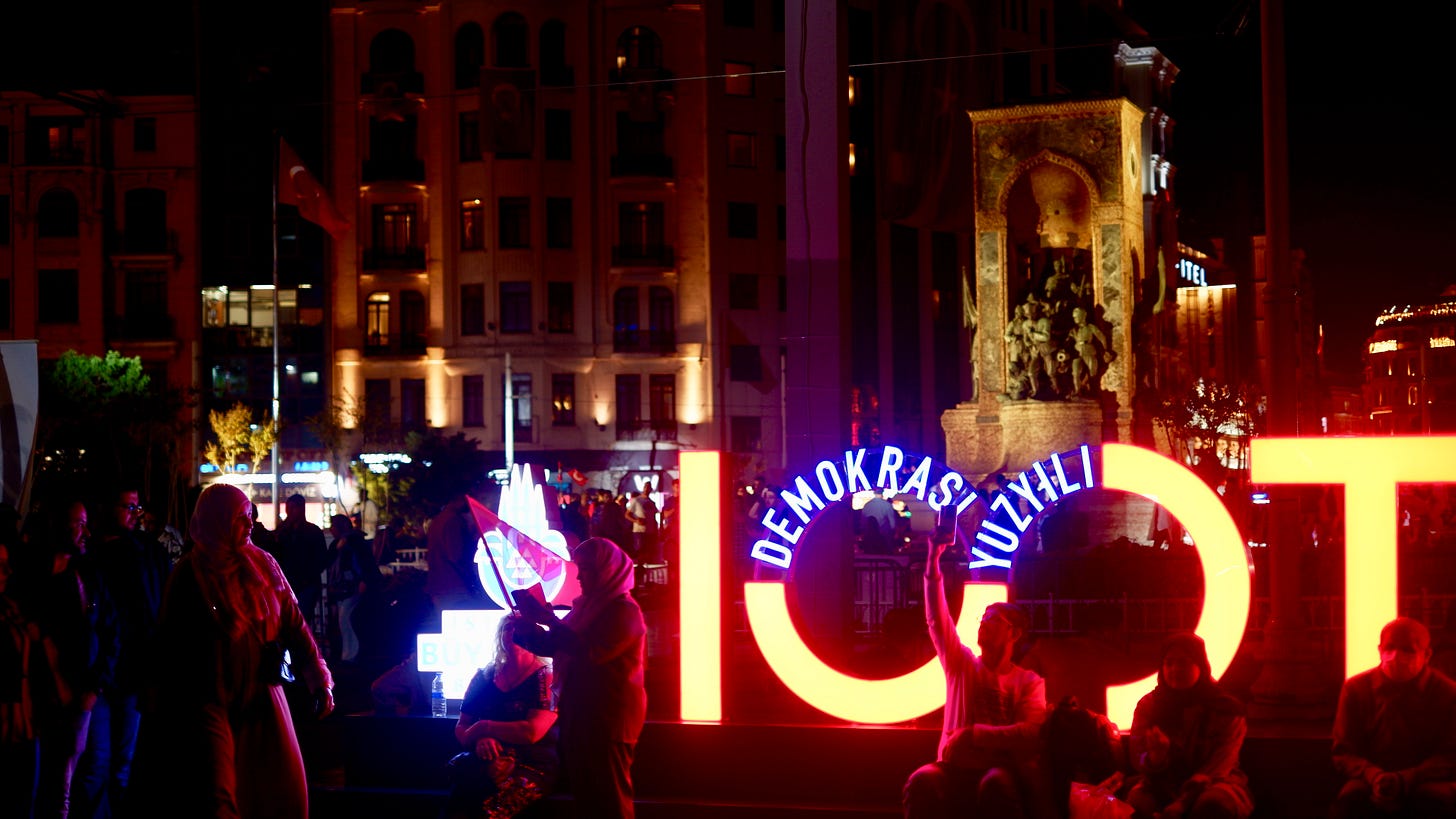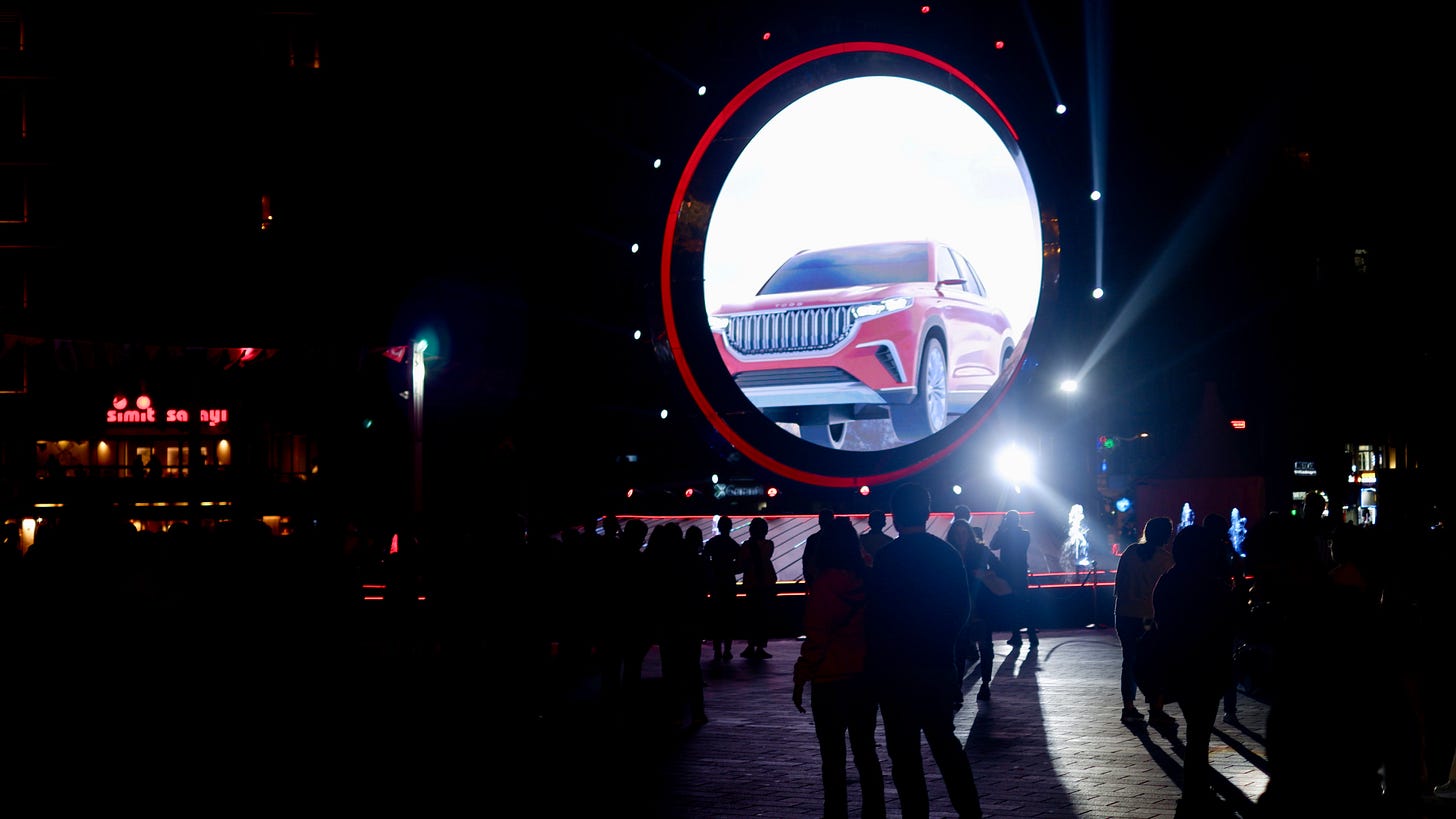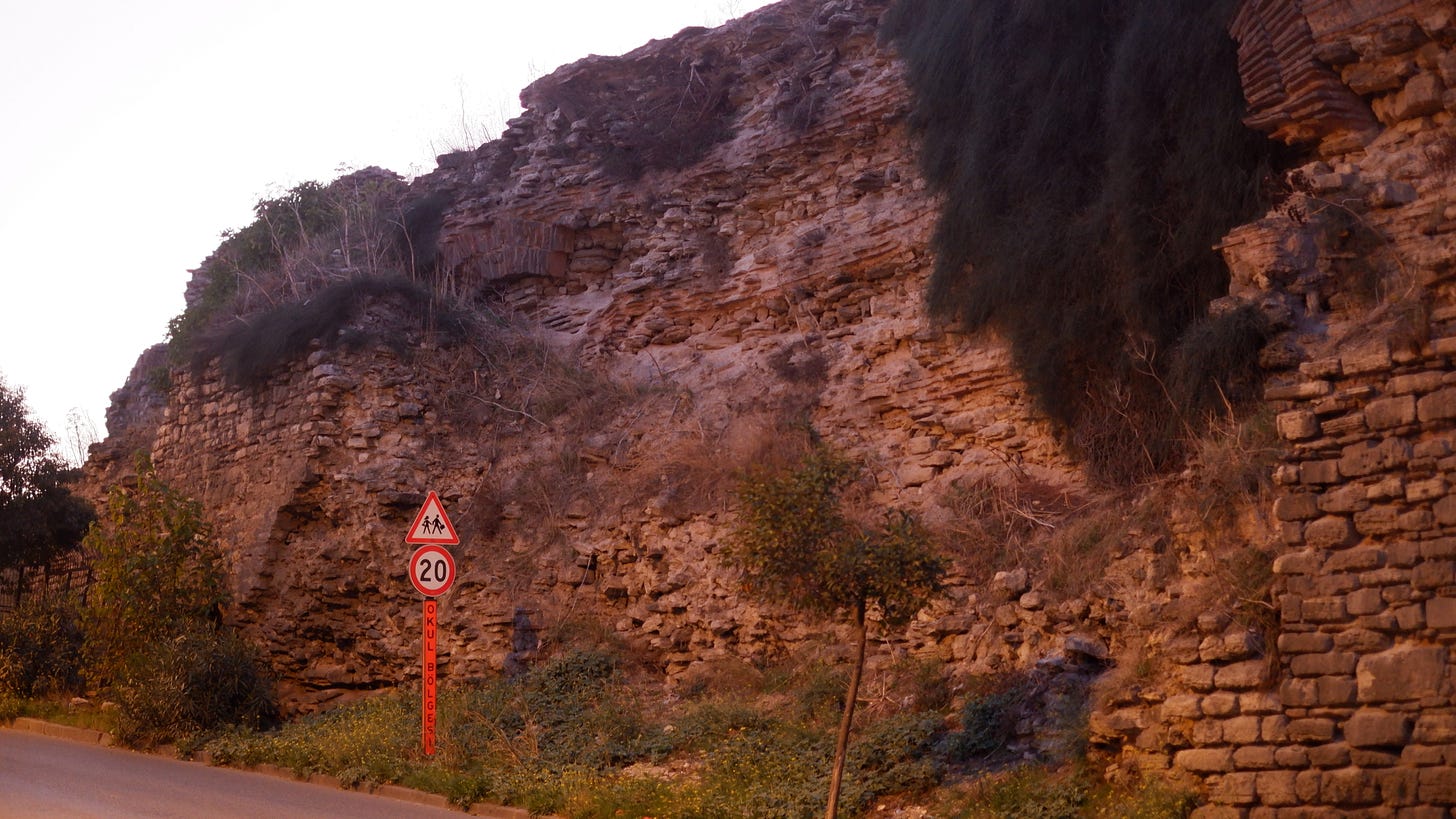The City Matters: All eyes on Istanbul in the second century of the republic
After the 100th anniversary of the establishment of the Turkish Republic, which took place a few months after pivotal elections, the spotlight is now on Istanbul as local elections are set for 2024.

On the evening of October 29, 2023, the centennial of the Turkish Republic, a massive circular television screen played bombastic videos to a fairly large crowd. A ring of fountains spurted patterns of water as a film on replay took dramatic turn after turn, bolstered by an intense soundtrack. Beginning with the Turkish War of Independence, where an army led by Mustafa Kemal Atatürk drove out the Western occupiers of Anatolia against all odds, it then depicts Atatürk announcing the establishment of the republic.
The video then immediately skips to a century later, and the screen flashes with a bright red TOGG, Turkey’s newly-unveiled electric car that President Recep Tayyip Erdoğan and the ruling Justice and Development Party (AKP) have championed at home and abroad. The film continues with clips of warships and jet planes, and a narrator emphasizing how much the government has invested in defense, technology and infrastructure, all for the purpose of strengthening the country and guaranteeing its independence. Erdoğan himself appears multiple times on the screen, embracing an elderly woman as the voiceover explains how the government has in turn embraced all of society. The president is later show sporting sunglasses and clutching a handful of wheat stalks to symbolize its efforts in developing agriculture.

This video was surely played on similar screens at squares across Turkey through Sunday, but its political message rang loud in Istanbul, particularly on Taksim Square, the site of an ongoing source of contestation between the government and its dissidents. The giant screen/fountain installation was placed on the edge of the square next to the entrance of Gezi Park, the proposed demolition of which sparked the largest and most significant nationwide protests in the history of the country, shocking and spooking Erdoğan. The crackdown was unprecedented, and in the ensuing decade, despite natural disasters, deadly bomb attacks, corruption scandals, continued infringement on freedom of speech and expression and a deepening economic crisis, no such protests have emerged since.
After Ekrem İmamoğlu won the 2019 Istanbul mayor elections (twice), many recalled the cliche that “whoever wins Istanbul wins Turkey,” and saw İmamoğlu as a front runner to face Erdoğan in the presidential elections earlier this year. Had that been the case, it is likely that the mayor would have performed better than the fragile opposition alliance helmed by Kılıçdaroğlu, which was humiliated by the incumbent. However, if İmamoğlu had managed to defeat Erdoğan, he would have had to resign as mayor, and since the the AKP holds a majority in Istanbul Municipal Council, it would have voted to appoint someone from its ranks, and the opposition would have lost leadership of the city after just four years. Well before the election, people close to the İmamoğlu administration told me that losing Istanbul was too great of a risk and that the mayor would stay in his seat.
Now that the government has secured power for at least five more years, its next primary target is retaking the major cities that it lost in 2019, which include Ankara, Adana and Mersin, collectively home to upwards of 10 million people. The 2019 losses were among the biggest setbacks that Erdoğan and the AKP have faced in two decade of power, and they are keen to reverse that in 2024. But it will be difficult in Istanbul, because İmamoğlu has been a highly effective and capable mayor, proving that he can get things done and communicate well with the residents of the city.
He has finished multiple metro projects started by the AKP which then froze funding after losing the city, requiring the administration to borrow money from Europe to complete them. Mothers of young children have been given free access to public transit, and a online program enabling those to pay the utility bills of people in need, resulting in more than 400,000 bills being paid. Particular attention has been paid to cultural heritage, and the city is restoring some of its most important structures largely neglected by the previous administration, including the 4th-century Valens Aqueduct and the 5th-century Walls of Constantinople.

Istanbul was an unparalleled source of funds for the AKP government, while the current administration is trying to give back to the city rather than extract from it. On October 31, it was reported that the ruling party submitted a proposal to parliament that would amend legislation regarding urban transformation, which would allow it to designate land as “reserve areas” supposedly allotted to absorb the risks of an expected major earthquake. Critics have pointed out that this would enable the government to seize property in districts of the city run by the opposition. Earthquake risk has for years been used as a pretext to gentrify poor neighborhoods, and this proposal seeks to take that a step further. It is the latest of many attempts to undermine the current administration and could be effective even if the city stays in İmamoğlu’s hands in 2024.
In a statement on October 31, İmamoğlu said that he knew who his competitor in next year’s elections. The government will certainly do everything it can to unseat him, but it doesn’t appear that any of the potential candidates have the clout of the current mayor. In any case, there’s going to be no shortage of mudslinging, and Istanbul will be witnessing fierce campaigns from both sides over the next five months.




Great article! This article gives the reader a real good understand of the current politics in Istanbul and more. Thank you!